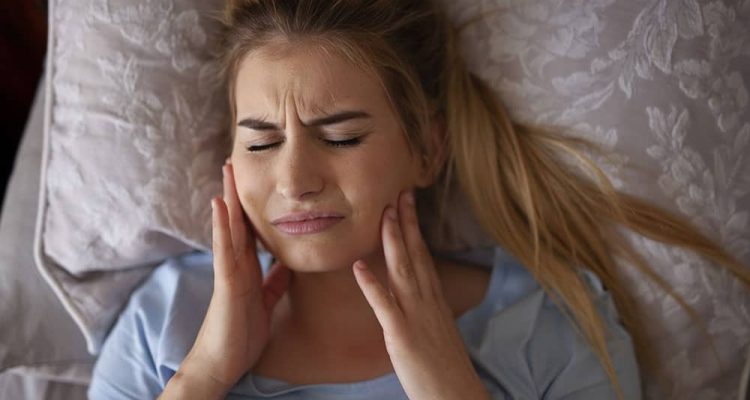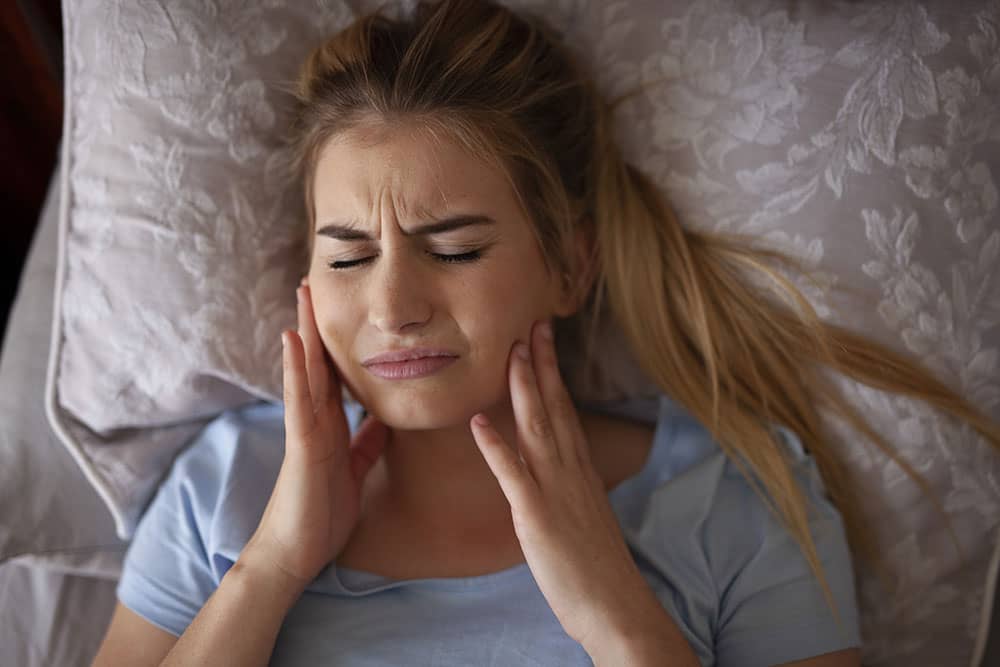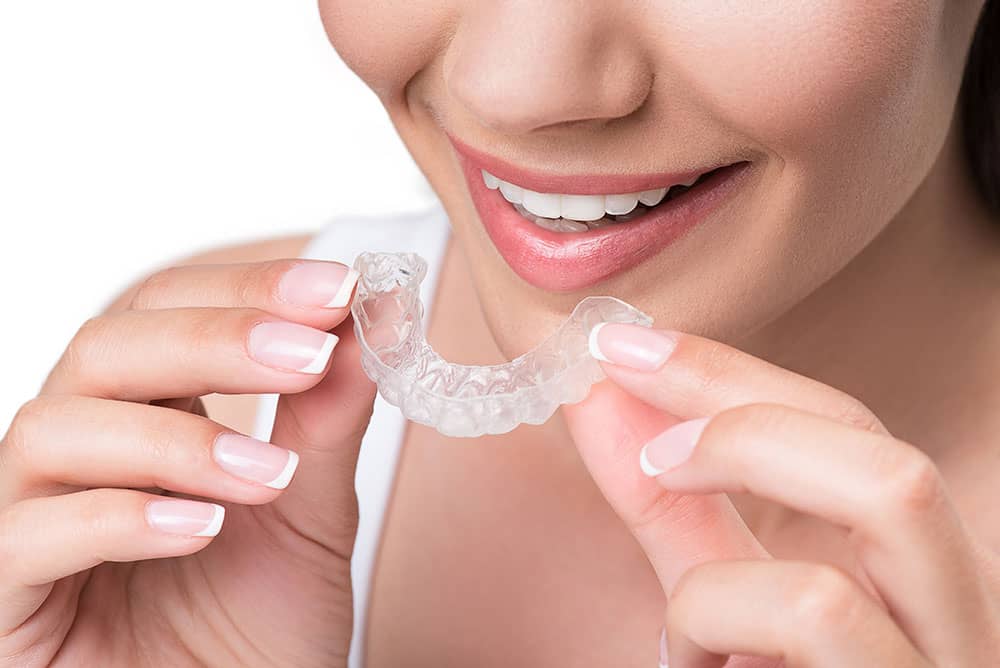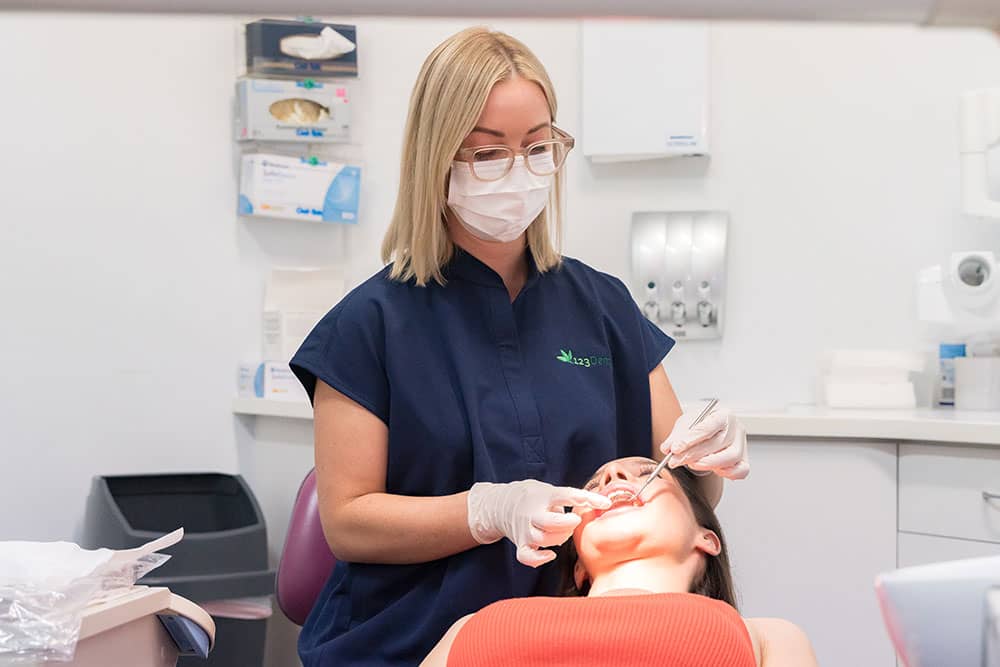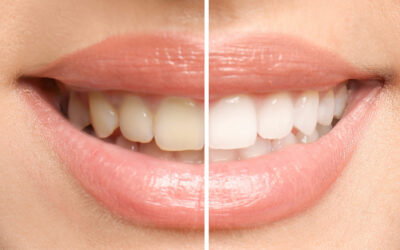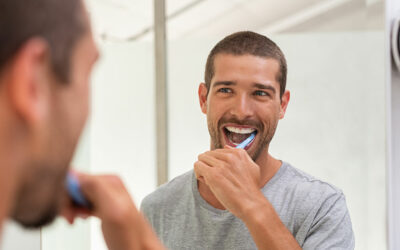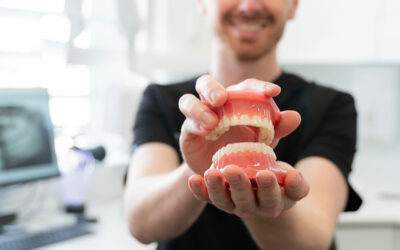Do you or a loved one clench, gnash, or grind your teeth? This involuntary teeth grinding is known as bruxism. Although it is not a serious concern in all cases, frequent or forceful grinding can lead to long-term damage to teeth and overall health.
What Are the Common Signs of Bruxism?
Many individuals grind their teeth without knowing it. If you only grind your teeth at night, you may be unaware of it unless someone tells you, or if you notice symptoms of bruxism.
Symptoms of teeth grinding can include:
- Morning headaches
- Teeth that are sensitive to hot or cold foods
- Jaw clenching when you are concentrating, stressed, or angry
- Pain in the temples, face, or teeth upon waking
- Stiffness or pain in the jaw, especially when chewing
- Teeth that feel loose or worn
- Cracked or chipped teeth
- Raised cheek tissue from biting
- Recesses on the tongue from biting
Some of these symptoms may be a result of other conditions that are also linked to bruxism, such as temporomandibular joint dysfunction (TMJD).
What Problems Can Teeth Grinding Lead To?
Bruxism does not always result in problems, but it can have negative effects on your dental health or overall well-being if it damages your teeth, reduces the amount of sleep you get, or strains your jaw muscles and joints.
Common problems associated with teeth grinding issues include:
- Tooth loss
- Wear and damage to teeth
- Damage to teeth restorations such as fillings
- Difficulty swallowing or chewing, which can negatively affect diet and nutrition
- Enlargement of the jaw or facial muscles
- Chronic pain
- Jaws or teeth moving out of alignment
- Speech difficulties
- Poor sleep quality (this can lead to further issues such as fatigue, memory loss, higher risk of work or motor vehicle accidents, and negative effects on overall well-being)
Many of these issues can worsen with time, making it crucial to notify your dentist if you are experiencing symptoms of bruxism.
Who Is At Risk of Teeth Grinding?
You may be at an increased risk of bruxism if:
- You consume excess caffeine or alcohol
- You snore
- You have existing sleep problems or disorders such as obstructive sleep apnea (OSA)
- You are prone to anxiety or stress
- You smoke
- You take certain prescription medications such as antipsychotics or antidepressants
- You use certain drugs
What Causes Bruxism?
Teeth grinding and clenching is believed to be a habitual behaviour that develops over time. It can have a variety of causes, making it important to pinpoint the root problem in order to plan effective treatment.
Often, there is more than one underlying factor for bruxism, including:
- Teething, nutritional deficiencies, airway issues or allergies (in children)
- Side effects from certain substances or medications
- Medical conditions such as Parkinson’s disease, epilepsy, or digestive disorders
- Psychological factors such as lack of sleep, stress, or anxiety
- An uneven biting surface caused by uneven restorations, missing teeth, misaligned teeth, or damaged teeth
Should I See A Dentist About My Teeth Grinding?
If your dentist recognises signs of teeth grinding during a dental exam, they may discuss possible treatments with you. In some cases, you may be referred to a dentist by your doctor.
If you are dealing with symptoms of teeth grinding, you do not have to wait for your regular checkup to be evaluated by your dentist. It is crucial to schedule an appointment immediately upon noticing symptoms of bruxism to discuss the best route of treatment.
During an evaluation for teeth grinding, your dental professional will carry out a thorough examination of your teeth grinding habits, lifestyle, diet, sleep habits, and any prescription medications you are taking to help determine the root cause of your teeth grinding and the best way to treat it.
How Is Bruxism Treated?
Bruxism is extremely difficult to cure or stop. Although there are some medications that can stop it, they often come with complications that are worse than the actual condition.
Most often, treating bruxism is about the management of the condition. Treatment for teeth grinding falls into two main categories: physical treatments to stop teeth from grinding together and managing lifestyle risk factors.
Suitable treatment depends on what is causing teeth grinding, how long it has been going on, how severe it is, and other factors. Depending on the individual case, treatment options may include:
- Avoiding substances such as excess caffeine, alcohol, or illegal drugs
- Muscle exercises that target the jaw and tongue to help train the jaw not to clench or grind and promote relaxation
- Stress management
- Jaw massage
- Biofeedback (more research is needed, but biofeedback therapy uses electrical stimulation to help individuals learn how to better control their jaw muscles)
- Orthodontics (aligners, braces, or other devices that can affect how the jaw works and moves)
- Efforts to improve quality of sleep
- Bruxism mouthguard
- Teeth reshaping or repair with fillings, crowns, or dental bonding
- Medication changes (if a particular medication may be causing bruxism, your healthcare provider may work with you to switch to a different medication)
- Medication (a medication to relax the jaw muscles is sometimes used short-term to address bruxism)
- Avoid chewing on objects such as ice or pencils
- Cosmetic injections (eg. Botox help relax the jaw muscles)
Depending on the cause and severity of your bruxism, dentists may recommend several treatments to help prevent the behaviour and repair any damage already done to your teeth.
Do Children Grind Their Teeth?
Because their teeth and jaws are constantly changing and developing, teeth grinding is a common childhood condition among children. In some cases, teeth grinding in children is harmless and temporary. However, in a lot of cases, it can be a sign of an airway issue such as enlarged tonsils or adenoids- we may recommend consultation from an Ear, Nose and Throat (ENT) surgeon to assess their airway
Your child’s dentist can determine if treatment is required and develop an appropriate plan of treatment to prevent bruxism and repair any damaged teeth.
Are You Struggling With Bruxism?
Teeth grinding is becoming increasingly common and can lead to unfortunate effects such as cracked or worn teeth. This makes it imperative to start treatment as soon as possible.
If you or a family member is experiencing bruxism or you suspect symptoms of teeth grinding, our experienced Perth dentist is to help you schedule an appointment, give you a professional diagnosis, and discuss potential treatment options.


